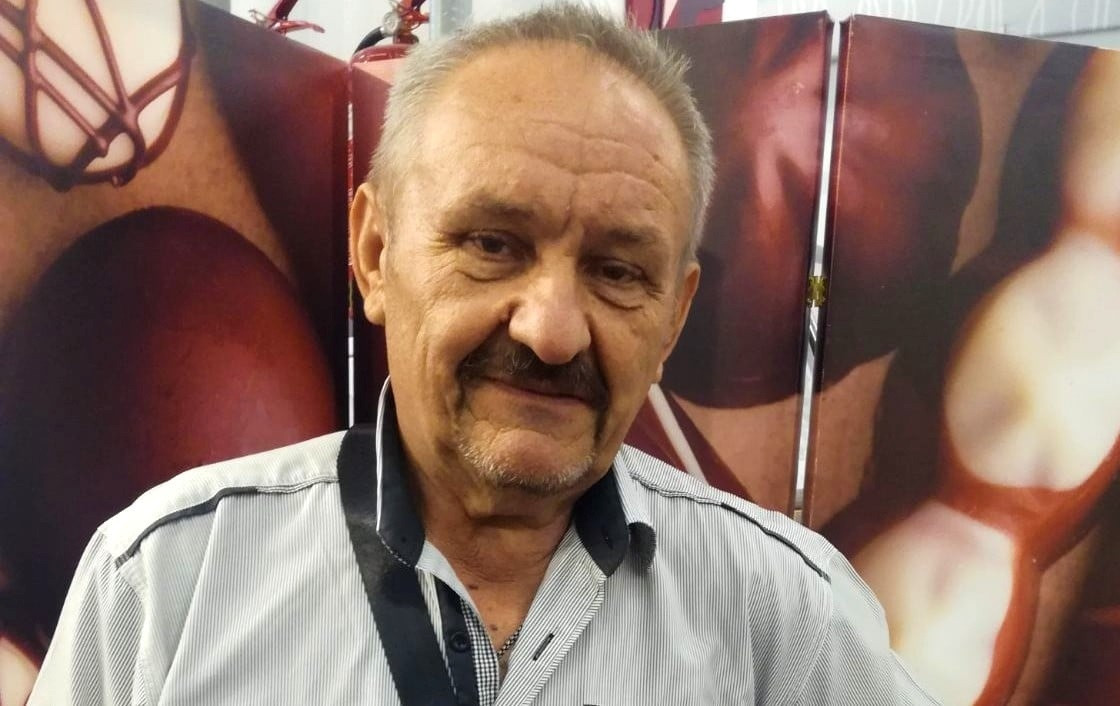On 3 December, the International Day of people with disabilities is commemorated. We decided to dedicate today's text from the #mistsya_nesvobody chapter to this date. There is no official statistics on how many people with special needs are held captive in the "LDNR" ("Lugansk and Donetsk people’s republics"), yet we can say for sure that they are the most vulnerable category among prisoners. What can they and their relatives hope for? More on this later.
- The guys who stay with him in the cell change his diapers, because he practically does not walk... He is in very serious condition, moves with the help of a walker.
Olena doesn't know if she will see her 71-year-old father again. It is already the fifth year that he, Donetsk pensioner Vitaliy Atamanchuk, has been held captive in the "DPR".

They were "arrested" on 4 September, 2018 at night. They took their father, mother and brother and carried them to an unknown destination with bags on their heads. Olena, who moved to Kyiv with a small child, found out about it the next day from neighbors.
The mother was not beaten, only suppressed psychologically, but the brother got it. A year later, he will die from the beatings he received and the stress he experienced. They did not see the father ever since then.
Meanwhile, a year after the "detention", the "DPR court" sentenced Atamanchuk the senior to 17 years in prison for "spying for Ukraine". The pensioner was sent to serve the sentence to the penitentiary colony No. 32 in the town of Makiyivka (Donetsk region).
Even before his "imprisonment", Vitaliy Atamanchuk had health problems. 26 years of work at the coal mine and 9 years in the Donetsk subway construction affected his health: coronary heart disease, progressive ankylosing spondylitis. It is clear that the conditions in which the prisoner is held do not improve his condition in any way.
In March of last year, the prisoner was hospitalized with a broken hip. He stayed for three months without medication. Relatives wanted to have a surgery performed, yet the militants did not allow it, put a retainer on the site of the bone fracture and returned him back to the colony. As a result, the leg has cured improperly and there were big problems with motion. Pain in the back. But even a banal painkiller has to be begged for every time:
- The medicines that we bring there may lie for several months and not reach him. They start issuing them only after he writes a few notes that he does not receive his medicines. Only give it out dosed: 1-2 pills per one request. Whether such treatment, or prevention helps, I do not know.
Recently, windows in the barracks where Atamanchuk is being held were broken by the explosion wave. From now on, the indoor temperature is equal to the outdoor temperature. Polyethylene, hastily stretched instead of the broken glass, does not save from the cold.
It is not the first time that the volunteer Olga Pokrovska has encountered such an attitude of "ORDLO" ("some areas of Donetsk and Lugansk regions") militants towards their prisoners. Once, to help one of the prisoners, the woman had to come to Donetsk herself to look for a dentist and persuade him to work for one day in a “penitentiary institution”. After all, there was a dental office there, but there was no doctor. But that didn't bother anyone.
- They have no goal there to help, to provide medical treatment to a person. They have aspirin for every occasion. High body temperature? Aspirin! Sore throat? Aspirin! Broken arm? Aspirin again!.. - We have learned to treat ourselves. - Recalls one of the former prisoners. - Garlic and onions were used to treat colds. But when you have, say, a stomach ulcer, then nothing will help you except a professional advice from a doctor. In the colony No. 32 (the town of Makiyivka, Donetsk region. - editor), we have always been "prescribed" water with salt.
It is not known how another prisoner of the colony No. 32, Valery Matyushenko, was "treated", however, the former Commissioner for human rights Lyudmila Denysova wrote about his critical condition. In his medical history there are problems with the thyroid gland, which can develop into oncological neoplasms and Tourette's syndrome (a genetically determined disease of the nervous system associated with impaired motor skills and periodic subconscious muscular contractions. - editor).

It is unlikely that anyone will tell what "treatment" the "arrested" "extremist" with a congenital heart defect, 22-year-old Bogdan Maksymenko, is undergoing. His "imprisonment" lasts for more than two years. One can only guess in what condition is the guy now …
We would like to end on a positive note and write about the upcoming exchange. Or how international organizations monitor the conditions in which militants keep prisoners with disabilities. However, this is not possible. The leaders of the "penitentiary institutions" of the LDNR do not like to demonstrate their seriously ill prisoners. And the prospects for being exchanged are rather illusory. The heroes of this material and their relatives have been waiting for their exchange for several years. And we do not know how much longer they will wait.
Therefore, there will be no bight ending. Unfortunately.
